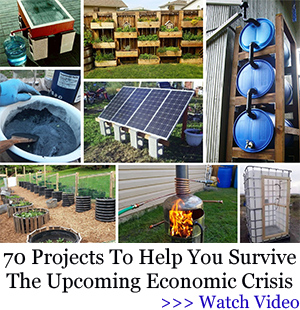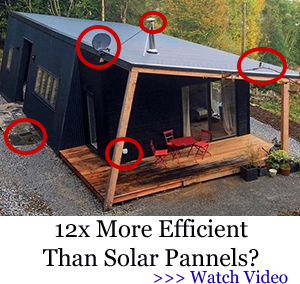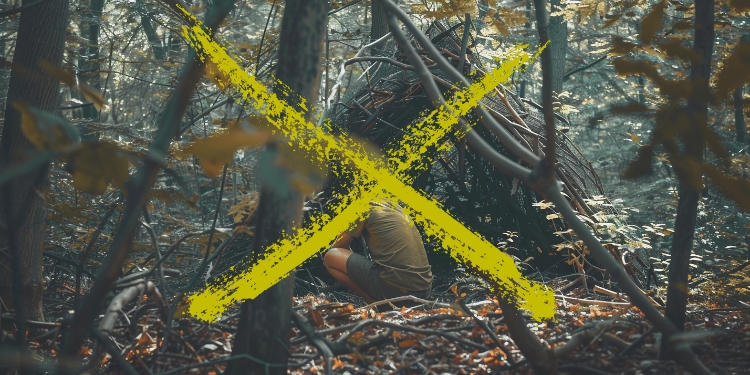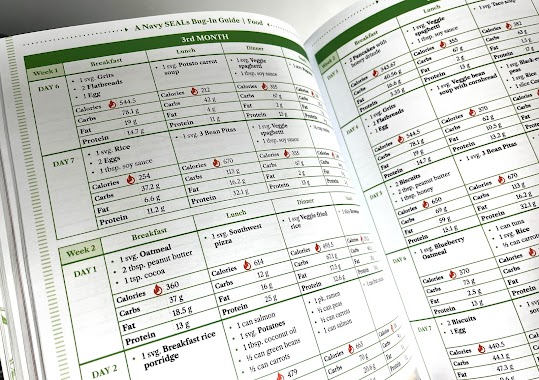When most people talk about surviving a disaster, the first thing that comes up is bugging out. Packing a bag, hitting the road, and heading for a remote Bug Out Location (BOL) has become almost a default plan in prepper circles. It’s not a bad strategy since sometimes it’s the only one that makes sense.
But what if there was a better way in most cases?
A survival option that’s more secure, more sustainable, and less risky than loading up the truck and hoping the roads stay clear. A solution that’s been quietly used for decades.
And what if I told you that you already have access to this shelter?
Related: Your Bug Out Bag Might Actually Be Useless
I am sure real preppers already realized what that place is.
Your home! The only place where you control everything. The authorities would rather you do not realize the power that you have when you transform your house into your survival shelter. It is a shame since it makes complete sense. Your house is the best place to be when SHTF. But it would be harder for you to be controlled if you turn your home into your survival shelter.
And why should you make your home your survival shelter? Here’s why!
Your Stuff Is At Home
 Your house is a familiar location. You know your way around it and you’ve set it up to suit you. It’s also where most of your possessions are, including many things that will be useful in a survival situation. Yes, you can take some of that stuff with you when you bug out, but all of it? Even bugging out in a vehicle, there’s a limit to what you can take with you. If you need to get to your bug-out location on foot that limit is a lot smaller.
Your house is a familiar location. You know your way around it and you’ve set it up to suit you. It’s also where most of your possessions are, including many things that will be useful in a survival situation. Yes, you can take some of that stuff with you when you bug out, but all of it? Even bugging out in a vehicle, there’s a limit to what you can take with you. If you need to get to your bug-out location on foot that limit is a lot smaller.
You can also stockpile supplies at your BOL, but that means splitting your inventory. Everything you move to there won’t be available to you if a crisis hits and you decide bugging in is your safest move. There’s also a risk of someone else finding your BOL and either occupying it or just stripping it of supplies. Of course looters might want to rob your home too, but if you’re there you can defend it.
Your Home Is An Asset
Not all BOLs are equal. If you have a fully equipped off-grid cabin in the woods, that’s one thing. If you’re planning on living in a tent, that’s a whole different story. In much of the US, winter weather can be lethal, and the chances are your home is a lot better insulated than any cabin. It’s definitely a lot better insulated than any tent, and that insulation could be a life saver when the cold weather sets in.
If you’ve already taken your home fully or partly off grid, it’s even more of a survival asset. If you’re generating your own power from wind or solar, have a well-designed root cellar, and have a well for water, your basic lifestyle doesn’t have to change much at all in a crisis.
You Don’t Need To Travel
 Any bugout plan will include how to get to your BOL as safely as possible, but there’s always some risk in traveling, and in a crisis it’s going to get a lot more dangerous. Depending on what the emergency is you could be faced with crowds of desperate refugees, military roadblocks or nuclear or chemical contamination. On the other hand, if you bug in you don’t need to go anywhere. You’re already right where you plan to stay. You also know the area well, so you’ll quickly spot anything new – and that means you can identify likely dangers.
Any bugout plan will include how to get to your BOL as safely as possible, but there’s always some risk in traveling, and in a crisis it’s going to get a lot more dangerous. Depending on what the emergency is you could be faced with crowds of desperate refugees, military roadblocks or nuclear or chemical contamination. On the other hand, if you bug in you don’t need to go anywhere. You’re already right where you plan to stay. You also know the area well, so you’ll quickly spot anything new – and that means you can identify likely dangers.
Even more important than knowing the area, you know the people. You’ll be surrounded by your neighbors. Some of them might be a problem, for example if they suddenly become interested in prepping when it’s too late and try to take your supplies, but they could also be an asset. If you already know other local preppers you can work together to help each other through the crisis.
Avoiding travel is also important if you have small children, or elderly or disabled relatives. Even a car journey can be stressful, and if your BOL is only accessible on foot you might really struggle to get everyone there. On top of that, your whole family knows where your home is. It’s the easiest place for everyone to head for in an emergency.
It Could Be Quieter
A big reason for bugging out is that it gets you away from other people. In a serious pandemic or social breakdown, getting away from other people can be a great idea – but what if bugging in is the best way to do it? When disaster strikes, preppers who plan to bug out won’t be the only ones leaving. Other people might decide to leave too. The authorities might even advise everyone to evacuate. Most of the time this is going to be good advice and you should take it, but if your neighbors start leaving on their own initiative, and you think it’s safe to stay, you can just let the other people get away from you.
This scenario gives you some real advantages. You get to stay in your own home, with all your possessions and supplies. In a longer-term crisis you could be able to collect more supplies from stores and other sources in the area around your home. Meanwhile most of the population have fled the area and are foraging in the rural areas where other preppers have their BOL.
If you took the necessary steps to prep your house, you probably do not stand out. And there are so many things you can do at home. For instance, you can replace your regular backup generator with a modular solar powered one like this one here. You spend less than you do on a generator and can create a device that can power your home without you doing anything for months.
You Can Grow Food
Growing food at home is a common prepper activity. We know because we worked closely with Ron and Johanna, the couple behind the Self-Sufficient Backyard. This guide was very well received by a vast majority of buyers, especially when referring to the 50+ Chicken Cook Secrets for a low effort organic protein source and the No-Work Orchard. Preppers are great at growing their own food, aren’t they?
If you have seeds you can start growing crops almost anywhere with suitable soil, but think about how much work would be involved in starting a vegetable garden at a BOL. You’d have to do a lot of digging to prepare the soil, at a minimum. On the other hand if you bug in, and already have a vegetable garden, you can go right on using it. You probably already have some crops growing in it, so it will start supplementing your food reserves a lot quicker.
Final Thoughts
Any prepper should be ready to bug out if they have to, but it’s not always the best plan. In fact, bugging in has so many advantages I personally think it’s the better option if it’s possible. Sure, be ready to bug out if necessary and have at least one potential BOL in mind, but if you don’t have to leave your home, don’t.
All you have to do is make sure that your home is as safe as possible and that you have everything you need for true self-sufficiency. A great resource for that is the Navy SEAL’s Bug-In Guide. This book gives you all the information you need to turn your house into the safest place on earth. Not joking. It does not matter if you are a man or a woman, a teenager, or a senior. This is a book that can literally help anyone.
Why?
The incredible level of detail offered.
In the image above you can see page from the guide. It is a part of the meal plan created especially for when you absolutely have to rely on your stockpile. As you can see, you are given highly-detailed information ranging from how much fat a meal has to all the food you need to survive alone for months. With such information, it is a breeze to build a stockpile you can rely on.
And the guide goes further and further. It truly tells you everything you need to know for bugging in. You will learn how to set up traps to protect your house from looters, how to get all the water you need without relying on the grid, how to build a survival generator, how you have to communicate post-SHTF, what medical supplies you need, and survival items you need but most likely did not even hear about. Everything presented IN DETAIL.
Read more about what you can find in the Navy SEAL’s Bug-In Guide here!
You may also like:
 How to Survive the First 24 Hours after the SHTF
How to Survive the First 24 Hours after the SHTF
7 Actions to Take Immediately Following an EMP Strike (Video)
















Assuming that you have been getting well prepared
then home is the place to be.
There is more danger on the road.Bad people will be
everywhere but they will be better dealt with in familiar
surroundings.